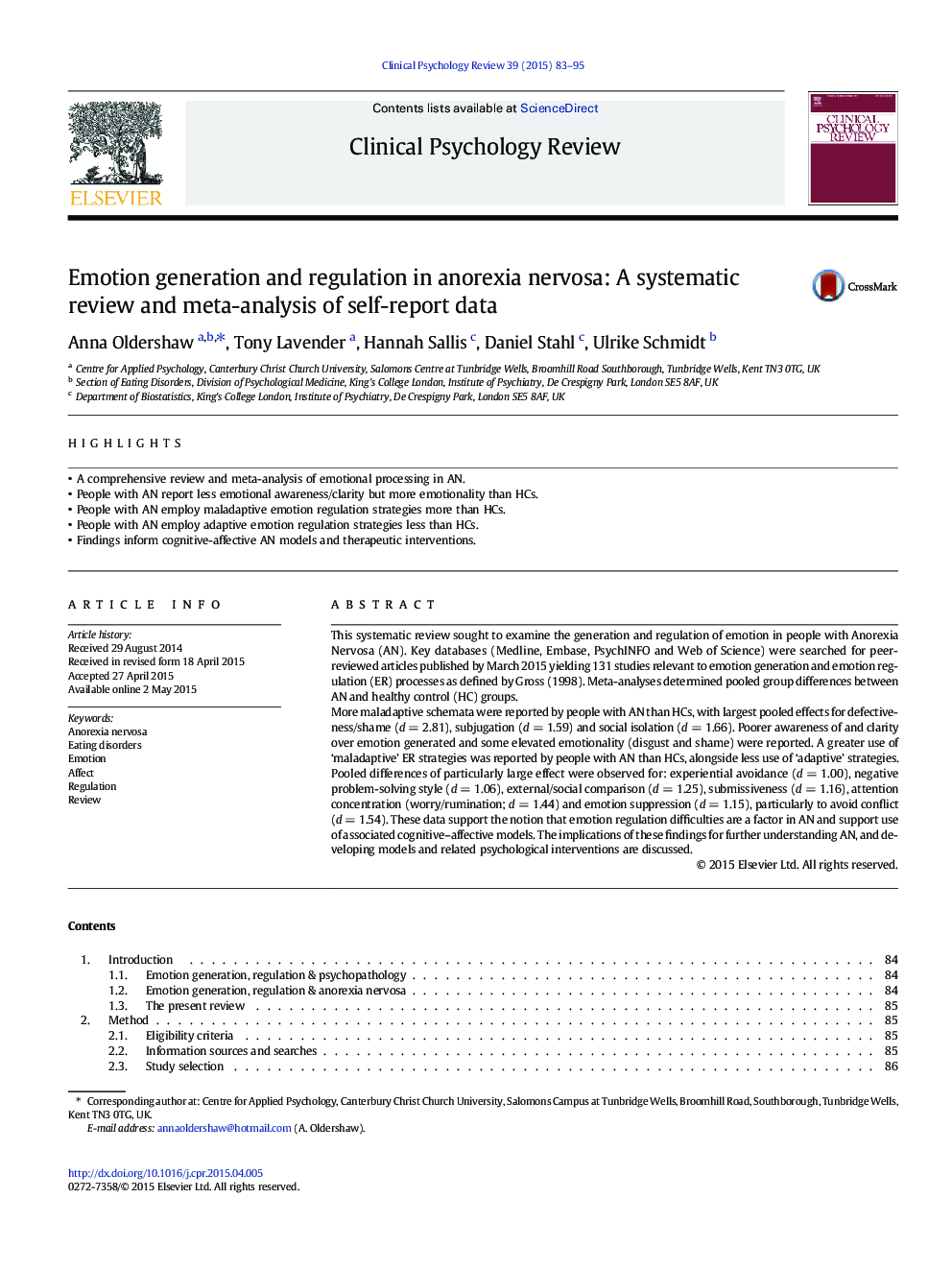| کد مقاله | کد نشریه | سال انتشار | مقاله انگلیسی | نسخه تمام متن |
|---|---|---|---|---|
| 903606 | 1472852 | 2015 | 13 صفحه PDF | دانلود رایگان |
• A comprehensive review and meta-analysis of emotional processing in AN.
• People with AN report less emotional awareness/clarity but more emotionality than HCs.
• People with AN employ maladaptive emotion regulation strategies more than HCs.
• People with AN employ adaptive emotion regulation strategies less than HCs.
• Findings inform cognitive-affective AN models and therapeutic interventions.
This systematic review sought to examine the generation and regulation of emotion in people with Anorexia Nervosa (AN). Key databases (Medline, Embase, PsychINFO and Web of Science) were searched for peer-reviewed articles published by March 2015 yielding 131 studies relevant to emotion generation and emotion regulation (ER) processes as defined by Gross (1998). Meta-analyses determined pooled group differences between AN and healthy control (HC) groups.More maladaptive schemata were reported by people with AN than HCs, with largest pooled effects for defectiveness/shame (d = 2.81), subjugation (d = 1.59) and social isolation (d = 1.66). Poorer awareness of and clarity over emotion generated and some elevated emotionality (disgust and shame) were reported. A greater use of ‘maladaptive’ ER strategies was reported by people with AN than HCs, alongside less use of ‘adaptive’ strategies. Pooled differences of particularly large effect were observed for: experiential avoidance (d = 1.00), negative problem-solving style (d = 1.06), external/social comparison (d = 1.25), submissiveness (d = 1.16), attention concentration (worry/rumination; d = 1.44) and emotion suppression (d = 1.15), particularly to avoid conflict (d = 1.54). These data support the notion that emotion regulation difficulties are a factor in AN and support use of associated cognitive–affective models. The implications of these findings for further understanding AN, and developing models and related psychological interventions are discussed.
Journal: Clinical Psychology Review - Volume 39, July 2015, Pages 83–95
